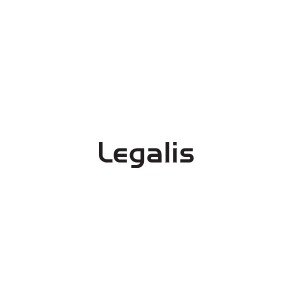Best Structured Finance Lawyers in Norway
Share your needs with us, get contacted by law firms.
Free. Takes 2 min.
Or refine your search by selecting a city:
List of the best lawyers in Norway
About Structured Finance Law in Norway
Structured finance refers to complex financial transactions that go beyond traditional lending and financing methods. In Norway, structured finance often involves securitization, project finance, asset-backed securities, syndicated loans, and other sophisticated arrangements used by businesses to raise capital or manage financial risk. Norwegian law provides a robust legal framework for these transactions, balancing investor protection with market innovation to promote safe and efficient financial markets.
Why You May Need a Lawyer
Securing legal advice for structured finance transactions is highly recommended, as these deals involve multiple parties, lengthy contracts, regulatory compliance, and significant financial stakes. Some common situations where a lawyer is essential include:
- Structuring transactions and negotiating loan terms for large projects
- Complying with Norwegian and EU financial regulations
- Drafting or reviewing contracts related to securitization or asset-backed securities
- Dealing with cross-border financing arrangements
- Resolving disputes between lenders, borrowers, or investors
- Advising on tax implications of complex financing solutions
- Monitoring regulatory changes that may impact ongoing or future transactions
Given the complexity, experienced legal support helps minimize risks, ensures compliance, and supports the smooth execution of structured finance deals.
Local Laws Overview
Several key Norwegian laws and regulations govern structured finance activities. Some of the most relevant are:
- Financial Contracts Act (Finansavtaleloven): Regulates credit agreements and financial instruments
- Securities Trading Act (Verdipapirhandelloven): Governs securities markets, including rules around disclosure, transparency, and investor protection
- Banking and Mortgage Legislation: Sets standards for collateral, loan structures, and creditor rights
- Norwegian Companies Act: Controls how companies can engage in financial transactions
- Regulatory Guidance from Finanstilsynet: The Norwegian Financial Supervisory Authority oversees compliance in the financial sector
- EU Directives: As part of the EEA, Norway implements relevant EU financial regulations such as CRD IV, MiFID II, and the Securitization Regulation
The legal landscape is dynamic, with local and EU-derived rules often impacting how structured finance transactions are designed and executed.
Frequently Asked Questions
What is structured finance in practical terms?
Structured finance refers to specially designed financial deals, such as the bundling of loans or pooling of assets, used to create tailor-made investments or raise capital for projects or companies.
Is securitization allowed in Norway?
Yes, securitization is permitted and practiced in Norway. However, it must comply with both national law and EU securitization regulations.
What are the main risks associated with structured finance?
Risks include regulatory non-compliance, credit risk, legal disputes, and market volatility. Professional legal guidance mitigates most of these risks.
Can foreign investors participate in Norwegian structured finance deals?
Yes, foreign individuals and institutions regularly invest in Norwegian structured finance products, but must adhere to local legal and tax requirements.
How are syndicated loans treated under Norwegian law?
Syndicated loans are recognized and regulated, with contractual freedom as long as Norwegian and EU financial regulations are observed.
Which authorities oversee structured finance in Norway?
The primary authority is Finanstilsynet (the Financial Supervisory Authority of Norway), along with the Norwegian Ministry of Finance and other sector-specific regulators.
Are there tax implications for structured finance transactions?
Yes, tax considerations such as withholding tax, VAT, and income treatment should be assessed in every transaction. Legal and tax advice is highly recommended.
What happens in case of insolvency of a party involved in structured finance?
Norwegian insolvency law outlines creditor priorities and procedures. Structured finance deals often include detailed pre-insolvency provisions to protect parties.
Do Norwegian companies face restrictions on raising finance internationally?
No general restrictions exist, but all transactions must comply with anti-money laundering, tax, and reporting obligations.
How can a lawyer assist in structured finance transactions?
A lawyer helps with transaction structuring, documentation, due diligence, regulatory compliance, negotiations, and dispute resolution.
Additional Resources
If you need more information about structured finance in Norway, these resources and organizations can help:
- Finanstilsynet (Financial Supervisory Authority of Norway) - Regulatory guidance, reports, and licensing information
- Norwegian Ministry of Finance - Legislative updates, public consultations, and financial policy
- Norwegian Tax Administration (Skatteetaten) - Information on taxation of financial instruments
- Norwegian Bar Association - Find qualified lawyers with expertise in financial law
- Oslo Stock Exchange (Oslo Børs) - Information on securities markets and publicly traded instruments
Next Steps
If you believe you need legal advice on a structured finance matter:
- Clearly outline your specific situation and identify the financial products or transactions in question.
- Gather any relevant documents, such as contracts, prospectuses, and correspondence.
- Contact a reputable Norwegian law firm or lawyer with expertise in financial services and structured finance.
- Request an initial consultation to discuss your needs, the potential legal strategies, and the likely costs involved.
- Ensure your legal advisor is familiar with both Norwegian and EU regulatory frameworks.
- Monitor ongoing changes in financial regulations that may affect your transactions.
Effective legal support is crucial for safely navigating the complexities of structured finance in Norway. By taking proactive steps and consulting with experienced professionals, you can protect your interests and facilitate successful financial transactions.
Lawzana helps you find the best lawyers and law firms in Norway through a curated and pre-screened list of qualified legal professionals. Our platform offers rankings and detailed profiles of attorneys and law firms, allowing you to compare based on practice areas, including Structured Finance, experience, and client feedback.
Each profile includes a description of the firm's areas of practice, client reviews, team members and partners, year of establishment, spoken languages, office locations, contact information, social media presence, and any published articles or resources. Most firms on our platform speak English and are experienced in both local and international legal matters.
Get a quote from top-rated law firms in Norway — quickly, securely, and without unnecessary hassle.
Disclaimer:
The information provided on this page is for general informational purposes only and does not constitute legal advice. While we strive to ensure the accuracy and relevance of the content, legal information may change over time, and interpretations of the law can vary. You should always consult with a qualified legal professional for advice specific to your situation.
We disclaim all liability for actions taken or not taken based on the content of this page. If you believe any information is incorrect or outdated, please contact us, and we will review and update it where appropriate.
Browse structured finance law firms by city in Norway
Refine your search by selecting a city.

















